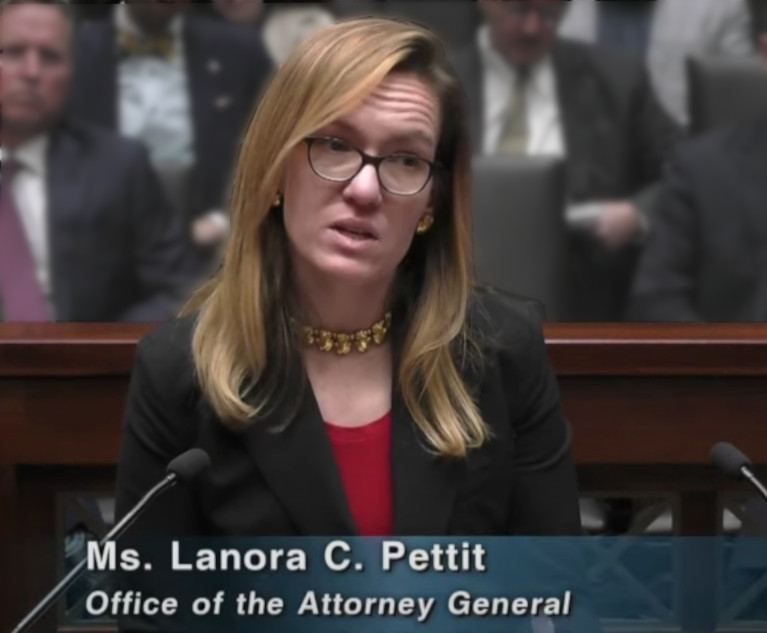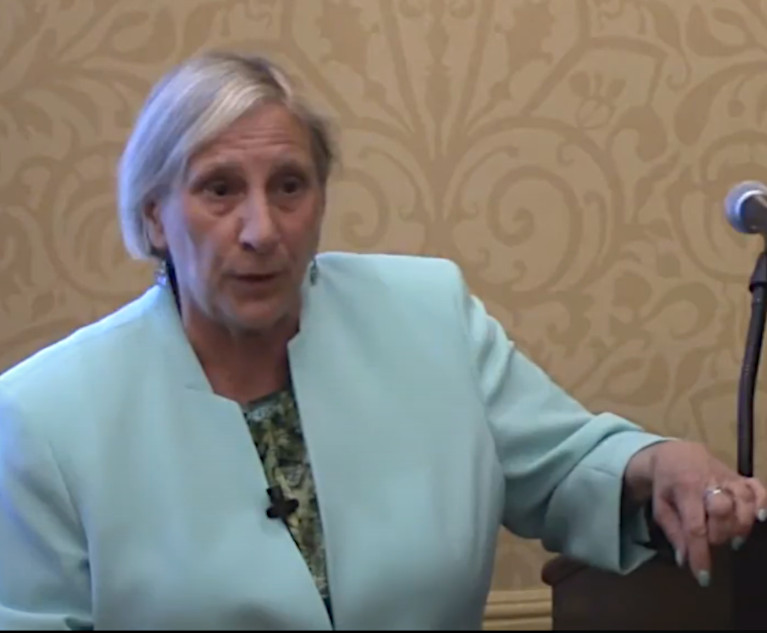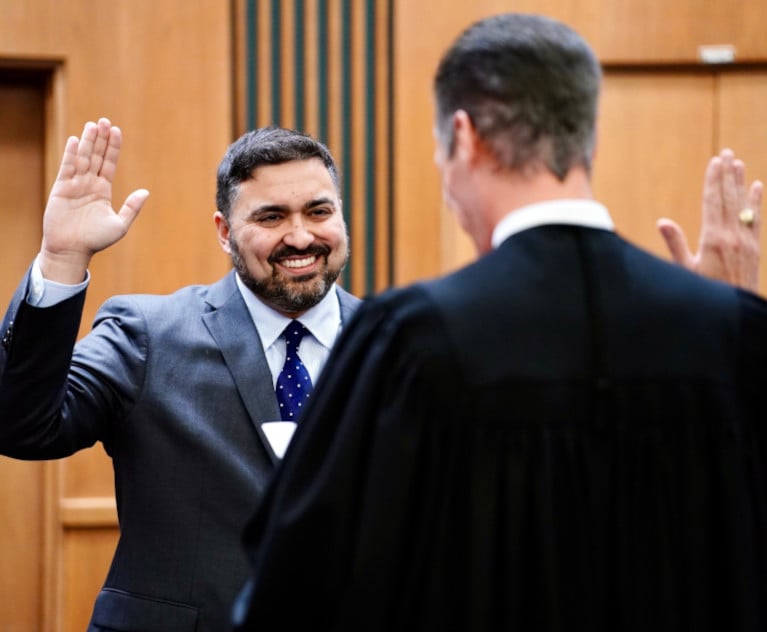 Randy D. Gordon. (Courtesy Photo)
Randy D. Gordon. (Courtesy Photo) Sensing an Ending: Inevitability in Closing Arguments
A case going to trial has no inevitable conclusion. Making the theory of a case appear inevitable is the best we can hope for.
November 02, 2022 at 04:44 PM
6 minute read
I left off last time with the suggestion that, in considering closing arguments, "inevitability" is key to their effectiveness. In recent times, very few (especially civil) cases get to trial. The ones that do—i.e., those that aren't resolved by plea agreement, settlement, or pre-trial motion—do so because the facts are in dispute, the facts may or may not constitute a violation, or the appropriate remedy is in doubt. For example, defendants accused of violating the Sherman Act may dispute that they agreed to fix prices, or they might argue that no matter what they did, they didn't cause the plaintiff's injuries, or the parties may have wildly different views on what constitutes a reasonable amount for damages. By nature, then, assuming rational litigants and lawyers, a case going to trial has no inevitable conclusion. Making the theory of a case appear inevitable is the best we can hope for.
Narrative inevitability is of course a construction because narrative itself is a construction—the enchainment of particulars selected from a host of particulars. And in the context of closing argument, the selection of particulars is an exercise in both authorship and advocacy that results in what Peter Brooks and Carlo Ginzburg more generally call a "retrospective prophecy"—"a construction of the story of the past by way of its outcome, what it was leading to." This retrospective prophecy, this story of a past event, will have persuasive force if the lawyer—in the role of detective—performs a retracing of some party's steps to an end that has been in sight since the beginning (e.g., the dead body). A gifted lawyer is able to perform this task because he is Holmes and Watson (Doyle, actually)—that is, he locates particulars and then enchains them into a story that, he hopes, will offer the most plausible account of what happened (how the victim died, why the plaintiff's business failed, or why a class member's stock price dropped precipitously, etc.).
This content has been archived. It is available through our partners, LexisNexis® and Bloomberg Law.
To view this content, please continue to their sites.
Not a Lexis Subscriber?
Subscribe Now
Not a Bloomberg Law Subscriber?
Subscribe Now
NOT FOR REPRINT
© 2025 ALM Global, LLC, All Rights Reserved. Request academic re-use from www.copyright.com. All other uses, submit a request to [email protected]. For more information visit Asset & Logo Licensing.
You Might Like
View All

HUD Charges Texas HOA With Housing Discrimination in Last Days of Biden Administration
5 minute readLaw Firms Mentioned
Trending Stories
- 1CFPB Labor Union Files Twin Lawsuits Seeking to Prevent Agency's Closure
- 2Crypto Crime Down, Hacks Up: Lawyers Warned of 2025 Security Shake-Up
- 3Atlanta Calling: National Law Firms Flock to a ‘Hotbed for Talented Lawyers’
- 4Privacy Suit Targets Education Department Over Disclosure of Student Financial Data to DOGE
- 5Colwell Law Group Founder Has Died in Skiing Accident
Who Got The Work
J. Brugh Lower of Gibbons has entered an appearance for industrial equipment supplier Devco Corporation in a pending trademark infringement lawsuit. The suit, accusing the defendant of selling knock-off Graco products, was filed Dec. 18 in New Jersey District Court by Rivkin Radler on behalf of Graco Inc. and Graco Minnesota. The case, assigned to U.S. District Judge Zahid N. Quraishi, is 3:24-cv-11294, Graco Inc. et al v. Devco Corporation.
Who Got The Work
Rebecca Maller-Stein and Kent A. Yalowitz of Arnold & Porter Kaye Scholer have entered their appearances for Hanaco Venture Capital and its executives, Lior Prosor and David Frankel, in a pending securities lawsuit. The action, filed on Dec. 24 in New York Southern District Court by Zell, Aron & Co. on behalf of Goldeneye Advisors, accuses the defendants of negligently and fraudulently managing the plaintiff's $1 million investment. The case, assigned to U.S. District Judge Vernon S. Broderick, is 1:24-cv-09918, Goldeneye Advisors, LLC v. Hanaco Venture Capital, Ltd. et al.
Who Got The Work
Attorneys from A&O Shearman has stepped in as defense counsel for Toronto-Dominion Bank and other defendants in a pending securities class action. The suit, filed Dec. 11 in New York Southern District Court by Bleichmar Fonti & Auld, accuses the defendants of concealing the bank's 'pervasive' deficiencies in regards to its compliance with the Bank Secrecy Act and the quality of its anti-money laundering controls. The case, assigned to U.S. District Judge Arun Subramanian, is 1:24-cv-09445, Gonzalez v. The Toronto-Dominion Bank et al.
Who Got The Work
Crown Castle International, a Pennsylvania company providing shared communications infrastructure, has turned to Luke D. Wolf of Gordon Rees Scully Mansukhani to fend off a pending breach-of-contract lawsuit. The court action, filed Nov. 25 in Michigan Eastern District Court by Hooper Hathaway PC on behalf of The Town Residences LLC, accuses Crown Castle of failing to transfer approximately $30,000 in utility payments from T-Mobile in breach of a roof-top lease and assignment agreement. The case, assigned to U.S. District Judge Susan K. Declercq, is 2:24-cv-13131, The Town Residences LLC v. T-Mobile US, Inc. et al.
Who Got The Work
Wilfred P. Coronato and Daniel M. Schwartz of McCarter & English have stepped in as defense counsel to Electrolux Home Products Inc. in a pending product liability lawsuit. The court action, filed Nov. 26 in New York Eastern District Court by Poulos Lopiccolo PC and Nagel Rice LLP on behalf of David Stern, alleges that the defendant's refrigerators’ drawers and shelving repeatedly break and fall apart within months after purchase. The case, assigned to U.S. District Judge Joan M. Azrack, is 2:24-cv-08204, Stern v. Electrolux Home Products, Inc.
Featured Firms
Law Offices of Gary Martin Hays & Associates, P.C.
(470) 294-1674
Law Offices of Mark E. Salomone
(857) 444-6468
Smith & Hassler
(713) 739-1250








